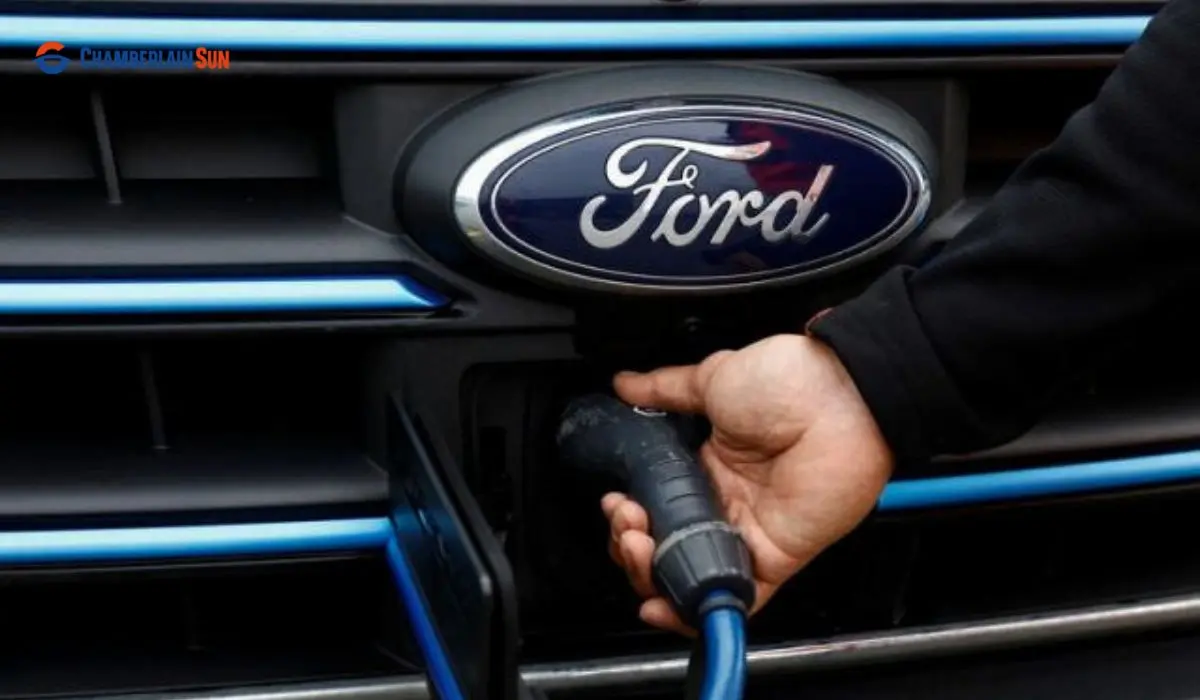In a significant shift that reflects the evolving corporate landscape, Ford Motor Company has announced changes to its diversity, equity, and inclusion (DEI) policies. This move places Ford alongside a growing number of American firms re-evaluating their approach to DEI initiatives, as the national debate over “woke” policies intensifies.
Ford’s decision, revealed in a letter from CEO Jim Farley to employees, underscores the company’s response to both internal and external pressures, including a campaign led by anti-woke activist Robby Starbuck.
Key Points
- Background on DEI Policies
- Ford’s Decision and Justification
- Reaction and Impact
- Broader Trend Among US Companies
The Shift In Ford’s DEI Strategy
Ford’s decision to pull back from certain DEI initiatives marks a notable departure from its previous stance. According to the letter from CEO Jim Farley, Ford has decided to prioritize business objectives over public commentary on politically and socially charged issues. This move is emblematic of a broader trend among companies reconsidering the role of DEI in their corporate strategies.

Farley highlighted that Ford does not use hiring quotas and has revised its Employee Resource Groups (ERGs) to ensure inclusivity for all employees. Moreover, Ford has withdrawn from participating in the Human Rights Campaign (HRC) Corporate Equality Index, a prominent survey that assesses corporate policies and practices related to LGBTQ+ employees. This decision signals a shift away from public endorsement of progressive causes, focusing instead on core business functions.
The Broader Corporate Context
Ford is not alone in this recalibration of DEI efforts. Other major companies, including Lowe’s, John Deere, and Tractor Supply, have also adjusted their DEI policies in recent months. This trend is part of a broader pushback against what some perceive as the overreach of “woke” culture in corporate America. The move away from DEI-centric policies reflects a growing sentiment among some corporate leaders that these initiatives may not align with their primary business goals or the preferences of their broader customer base.
Robby Starbuck, an anti-woke activist and filmmaker, has been at the forefront of exposing and challenging these corporate policies. Starbucks claims credit for influencing Ford’s recent decision, along with similar changes at companies like Lowe’s and Tractor Supply. His campaign, which leverages social media and public pressure, has brought significant attention to the debate over DEI in the workplace.
Response from the Human Rights Campaign
The Human Rights Campaign (HRC), a leading LGBTQ+ advocacy group, has condemned Ford’s decision to scale back its DEI initiatives. In a statement, HRC President Kelley Robinson criticized Ford for abandoning its commitment to inclusion and diversity, arguing that the company has capitulated to pressure from anti-woke activists. Robinson expressed disappointment, particularly given Ford’s long-standing record of support for LGBTQ+ rights and its previous high ratings in equality indices.
The HRC’s response reflects the organization’s concern that Ford’s actions could signal a broader retreat from corporate commitments to social justice and equality. Similar condemnations have been directed at other companies that have recently withdrawn from HRC’s Corporate Equality Index, including Lowe’s and Brown-Forman, the owner of Jack Daniel’s.
The Implications For Corporate America
Ford’s decision to walk back certain DEI initiatives has significant implications for corporate America. As companies face increasing scrutiny over their stance on social and political issues, many are reassessing the role of DEI within their organizations. This shift suggests a potential rebalancing of corporate priorities, where business objectives may take precedence over public advocacy on controversial issues.
The trend also raises questions about the future of DEI programs in corporate settings. While some companies may continue to champion diversity and inclusion as central to their brand identity, others may choose to adopt a more neutral stance, focusing on core business operations and avoiding entanglement in divisive social debates.
The Role Of Activism In Shaping Corporate Policy
Robby Starbuck’s activism highlights the growing influence of social media campaigns in shaping corporate policies. By mobilizing public opinion and targeting specific companies, activists like Starbuck are exerting considerable pressure on corporate leaders to reconsider their DEI strategies. This dynamic underscores the power of grassroots movements in driving change within corporate America, even as it raises concerns about the potential impact on long-standing commitments to diversity and inclusion.
Starbuck’s success in influencing corporate decisions reflects a broader backlash against what some view as the politicization of the workplace. His campaign, which has already led to policy changes at several major companies, signals a shift in the corporate landscape, where businesses are increasingly cautious about aligning themselves with controversial social issues.
Ford’s decision to step back from certain DEI initiatives marks a significant moment in the ongoing debate over “woke” policies in corporate America. As more companies follow suit, the future of DEI programs remains uncertain. While some organizations may continue to champion diversity and inclusion, others may choose a more cautious approach, prioritizing business goals over public advocacy. The influence of activists like Robby Starbuck further complicates this landscape, suggesting that the debate over DEI in the workplace is far from settled.

